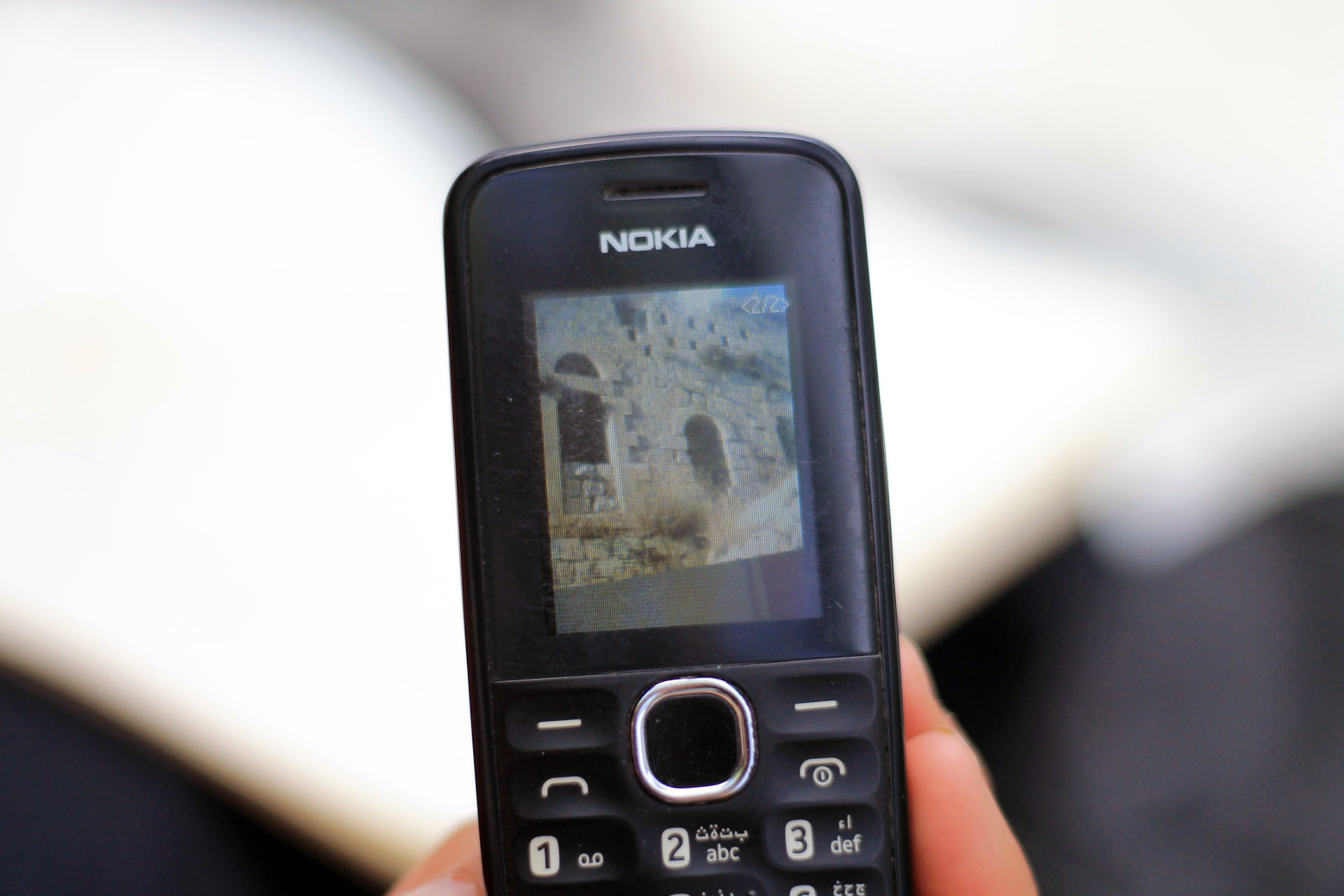
Laura van Rij (LR): What is your connection to Lifta?
Ahmad (A): My father and grandfather and the generations before them lived in Lifta. Because we were kicked out I was born in Jerusalem, after 1948. We had a home down in Lifta, and one in Upper Lifta as well, my family build it in 1937.Until the Damascus gate, that is how far you could walk on Lifta land. It was a big piece of land. Now you will not see this, they changed the names of the streets, they removed the Arab names from before 1948. The bus station, the Knesset, the Israeli Television, it is all situated on Lifta´s land. Our house now, and my shop, they want to take this away too. This piece of land around here, there are five families living here, and we are surrounded by buildings. Supposedly for the Hebrew University, but it´s build by foreign investors. They are make money on our behalf, on our land. I was born and raised here, I went to school here on Mount Scopus. Our life is very difficult.
LR: Can you tell something about the first time you went to Lifta?
A: My father took us there right after the war in 1967, we were young back then. He took us to our home, the house where he was born and raised. The life was simple then, not as difficult as in these days. My father was a farmer; he had olive trees, lemons, things like that. He was working on his land, my family was living very happily. It was a quiet and peaceful life. Christians, Jews, and Muslims were living next to each other, there was no discrimination. They respected you as a human being no matter where you came from, today there is discrimination and war.
LR: How was it to be there?
A: Until 1967 we were not allowed to visit Lifta. When we were allowed everybody went there to show their children where they were born. There were people living in our house. My father asked them if he could show us the house, they didn´t want to let him in. We had all the papers, but they said they bought the house from the government. They were from Iraq.I wanted to see where my father was born and raised. I wanted to see my grandfather´s house. My father tried to explain to me how it looked like, the house, but I never was there. Even today, I know how the house looks from the outside, but I have never been inside. The people living there were not nice to us, although they probably knew in their hearts that it didn´t belong to them. You can´t force your way into the house, you can knock on the door and ask nicely.
LR: What would you like to happen in Lifta?
A: I want it to be like any other village in the world. When you have a home, you don´t want anyone to come and claim it. Every opportunity that I get I visit Lifta and my father´s house. A few months ago we went with a couple of busses. We took the kids and tried to show the children that we have a homeland over here.
LR: Do you see it like that? That Lifta is your actual homeland?
A: Yes, I see it like that. When I go to Lifta I just walk around, look at our old homes, our neighbours. We can´t go in so we just walk around. I love Lifta, it´s my home. Everybody likes to go back to his home. And this here, this is our land.

